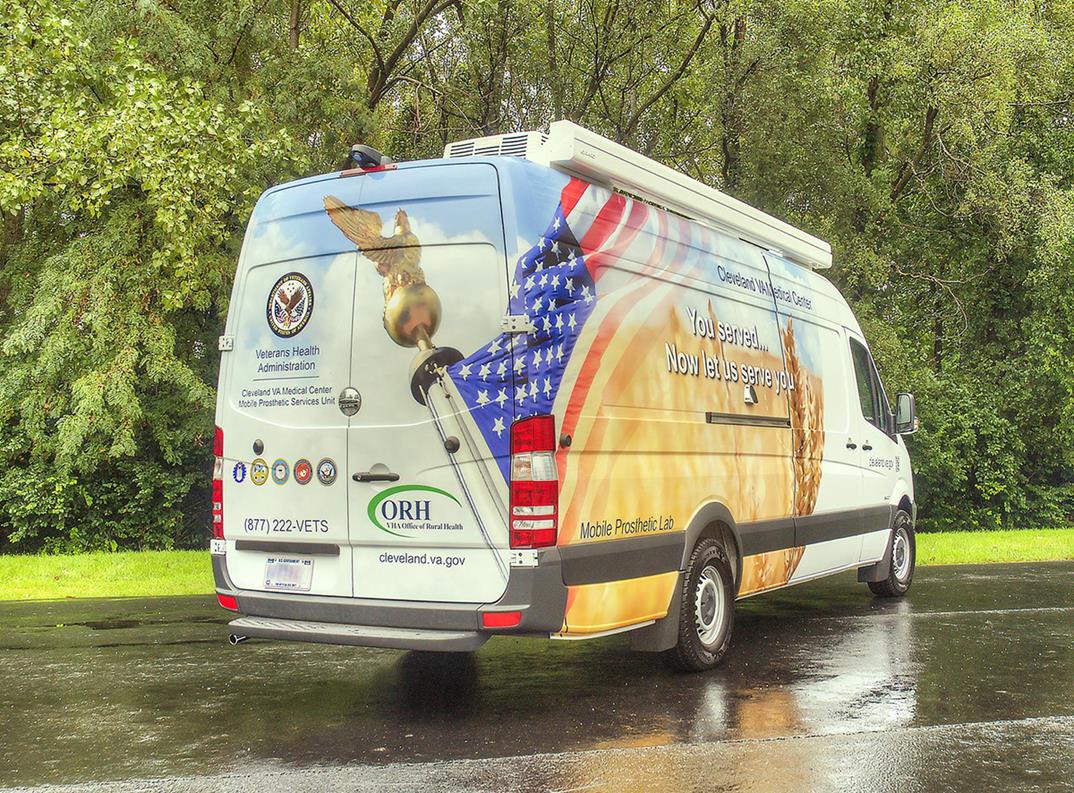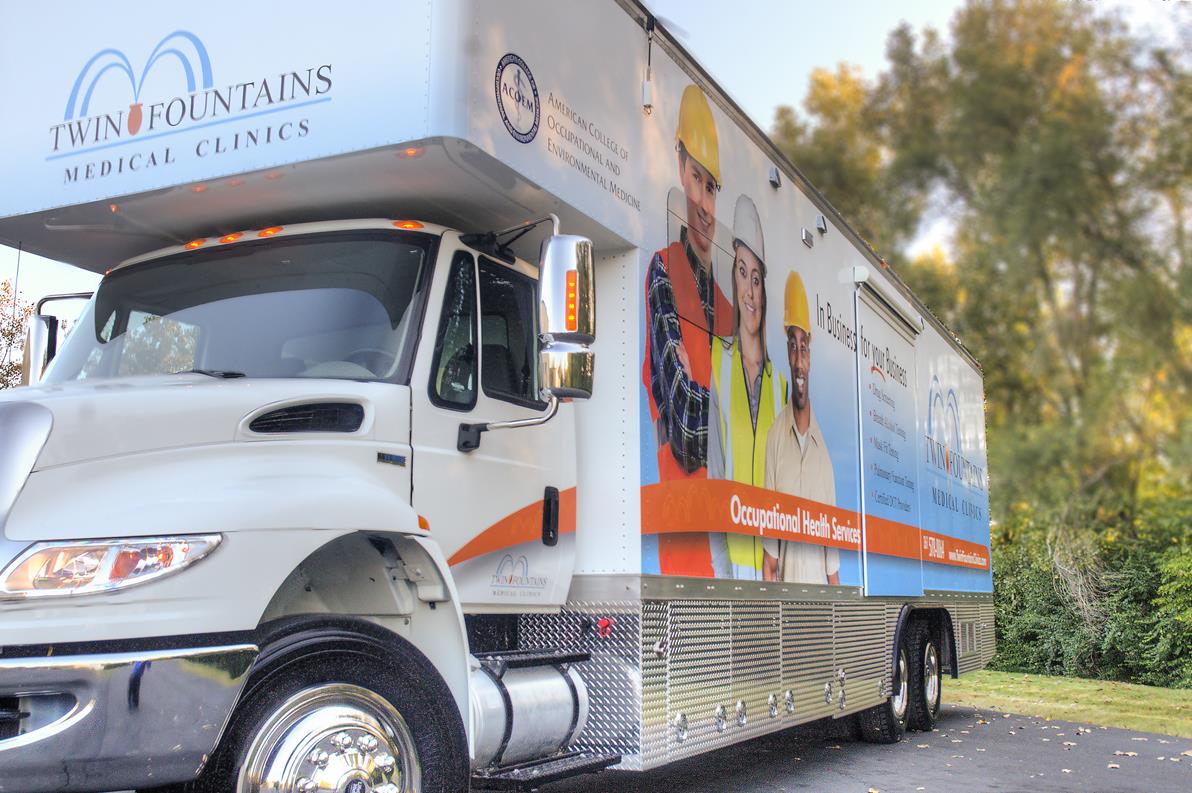According to the Centers for Disease Control and Prevention more than 16 million Americans are living with a disease caused by smoking. It is common knowledge that smoking causes cancer, heart disease, stroke and lung diseases. The FDA states that almost 70 percent of current smokers report wanting to quit smoking, however fewer than half makes it past an attempt. Receiving guidance from a healthcare provider to quit is often the only way many people will make the attempt and follow through.
All of us who work in healthcare want to help people quit smoking and we can have a positive impact by offering cessation treatments and programs. Many of those who need help the most are disenfranchised from the rest of the population, and the best way to reach them is with mobile clinics where they live, shop or work.
Mobile Health Clinics Make a Huge Impact on Healthcare
The case has been made that because mobile clinics make a variety of location stops on a regular basis they have a significant impact in facilitating trusting relationships in the community. Consistently traveling to familiar neighborhoods on a recurring schedule gives people a comfort level that they can depend on. Regularly visiting schools, businesses,  shopping centers, parks and other areas in people’s neighborhoods builds trust. And utilizing the space in the mobile clinic to create a friendly and comfortable atmosphere provides an ideal blend of social and healthcare space, allowing for an intimate setting that is welcoming and not intimidating. Mobile units are in a unique position to regain the trust of disenfranchised people to give them the reassurance they can have personalized healthcare service and encourage them to reconnect for regular care.
shopping centers, parks and other areas in people’s neighborhoods builds trust. And utilizing the space in the mobile clinic to create a friendly and comfortable atmosphere provides an ideal blend of social and healthcare space, allowing for an intimate setting that is welcoming and not intimidating. Mobile units are in a unique position to regain the trust of disenfranchised people to give them the reassurance they can have personalized healthcare service and encourage them to reconnect for regular care.
According to The American Journal of Managed Care: “Mobile clinics represent an integral component of the healthcare system that serves vulnerable populations and promotes high-quality care at low cost. There are an estimated 1,500 mobile clinics receiving 5 million visits nationwide each year. Mobile clinics improve access for vulnerable populations, bolster prevention and chronic disease management, and reduce costs. Expanded coverage and delivery reform increase opportunities for mobile clinics to partner with hospitals, health systems and insurers to improve care and lower costs.”
The Case for Operating a Mobile Clinic: Bringing Residual Income to Your Organization
Research shows that when your mobile health clinic discovers a patient’s health problem, more than 80 percent of the time that patient will seek further treatment within your organization. For many services like screenings for lung disease, diabetes or mammography imaging, the initial discovery of a patient’s problem can produce literally millions of dollars in income that is directly attributable to the initial mobile unit-based discovery.
Referral to your doctors and facilities builds patient loyalty, and establishes a medical home so patients have continuity-of-care. When a patient requires medical treatment that is beyond the scope of the mobile unit’s capability, a mobile staff member will refer the patient to your home hospital or healthcare facility. Driving patient referrals can be the largest cost benefit to utilizing mobile medical as part of a health organizations total service offering. The economic benefits to the  organization are significant in driving business. The mobile unit can bring more patients and more income to a healthcare organization than many other marketing initiatives. When organizations incorporate mobile clinics into their overall marketing plan there is a proven, traceable and tangible ROI (return on investment) that other marketing efforts cannot demonstrate.
organization are significant in driving business. The mobile unit can bring more patients and more income to a healthcare organization than many other marketing initiatives. When organizations incorporate mobile clinics into their overall marketing plan there is a proven, traceable and tangible ROI (return on investment) that other marketing efforts cannot demonstrate.
By referring patents from the mobile clinics to doctors within their system the patient receives continuity of care in the same way the health system’s emergency room, clinics or individual practitioner’s office provide. Immediate referrals can be made while the patient is in the mobile unit and electronic health records (EHR) are transferred directly to the home facility. This further ensures important continuity of care for the patient and helps secure additional revenue for the organization. Plus, a mobile clinic is a billboard on wheels.
How Mobile Health Clinics Can Help With Smoking Cessation
The Breathing Association in Columbus, Ohio has a mission is to help people breathe easier through education, detection, care, and treatment. Their Mobile Lung Health Clinic provides Smoking Cessation classes for groups and individuals.
There are also a number of mobile medical clinics that provide lung cancer screenings and diagnosis, including:
- Levine Cancer Institute at Carolinas HealthCare System
- Catholic Health Initiatives
- Yorkshire Cancer Research’s Leeds Lung Health Check
These are terrific examples of organizations helping rural and urban underserved people receive early diagnosis. Yet, there is a significant need to reach these populations to help them quit tobacco and lead healthy lives before diseases occur. There are many thousands of mobile health clinics on the road everyday throughout the United Sates and the world. A mobile health program can offer smoking cessation programs that can be incorporated into their daily work on the road, offering early intervention with classes, other smoking cessation treatment programs and referrals.
Key areas of focus are mobile clinics that provide addiction services. Statistics show that persons in addiction treatment have among the highest smoking prevalence of any population. Just consider any typical Alcoholics or Narcotics Anonymous group; cigarettes and coffee.
Deployed to rural communities, urban neighborhoods, schools, prisons and retail centers, mobile units are a visible sign to those who find it difficult to accept help on their own. For those battling addiction they serve to overcome the stigma of seeking initial help at hospitals, doctor’s offices or even drug-treatment facilities. Mobile clinics can reach those in the shadows, struggling with addictions and too fearful or paranoid to seek help. And since tobacco use is an addictive behavior, it is no wonder that those suffering from a chemical dependency are also in the risk category of being a smoker.
It is clear that mobile clinics play a critical role in providing high-quality, low-cost care to vulnerable populations. If you do not operate a mobile clinic today, it is important to understand how partnerships with hospitals, health systems, clinics and insurers provide a wide array of services, including:
|
Health Screenings |
Patient Education |
Physicals |
Vision/Hearing Testing |
Lung Health Services |
|
Immunizations |
Primary Care |
Treatment of Acute & Chronic Illnesses |
Asthma Screenings & Treatment |
And Much More |
Staffed by licensed health care professionals, mobile medical is a perfect position to offer Smoking Cessation services such as medication recommendations, classes and referrals to specialists. Because they are on the road every day providing valuable healthcare services, they are poised to significantly help impact a reduction in the 7 million smoking related deaths each year.
Healthy People is a U.S. government organization that provides science-based, 10-year national objectives for improving the health of all Americans. A major part of Healthy People 2020’s goals is to reduce smoking prevalence among adults to 12% or less and to increase smoking cessation attempts by adult smokers from 41% to 80%.
Conclusion
Smoking Cessation is a cause we can all work toward. If you operate a mobile health clinic, or are considering one, programs to help people stop using tobacco products can be an integral part of the services you provide. At LifeLine Mobile we are proud to play a role with our customers in helping to bring much needed healthy living programs to those people often on the fringes. There are millions of people who would not receive healthcare were it not for the army of mobile clinics throughout the country, and the world, on the front lines fighting the battle everyday!
Additional Sources Include:
- Smoking cessation behaviors among older U.S. adults.
Henley SJ1, Asman K2, Momin B1, Gallaway MS1, Culp MB1, Ragan KR1, Richards TB1, Babb S3.
Author information:
1 Division of Cancer Prevention and Control, National Center for Chronic Disease Prevention and Health Promotion, Centers for Disease Control and Prevention, 4770 Buford Highway NE, S107-4, Atlanta, GA 30341, United States of America.
2 Biostatistics and Epidemiology Division, RTI International, 2987 Clairmont Rd NE #400, Atlanta, GA 30329, United States of America.
3 Office on Smoking and Health, National Center for Chronic Disease Prevention and Health Promotion, Centers for Disease Control and Prevention, 4770 Buford Highway NE, S107-7, Atlanta, GA 30341, United States of America.
- Differences in tobacco use prevalence, behaviors, and cessation services by race/ethnicity: A survey of persons in addiction treatment.
Pagano A1, Gubner NR2, Le T2, Yip D2, Williams D2, Delucchi K3, Guydish J2.
Author information:
1 Prevention Research Center, Pacific Institute for Research and Evaluation, 2150 Shattuck Ave, Suite 601, Berkeley, CA 94704, United States of America. Electronic address: [email protected].
2 Philip R. Lee Institute for Health Policy Studies, University of California, San Francisco, 3333 California St., Suite 265, San Francisco, CA 94118, United States of America.
3 Department of Psychiatry, University of California San Francisco, 401 Parnassus Ave., San Francisco, CA 94143, United States of America.
- Quit attempt correlates among smokers by race/ethnicity.
Kahende JW1, Malarcher AM, Teplinskaya A, Asman KJ.
Author information:
-
- Centers for Disease Control and Prevention, National Center for Chronic Disease Prevention and Health Promotion, Office on Smoking and Health, 4770 Buford Highway, Atlanta, GA 30341, USA. [email protected]

